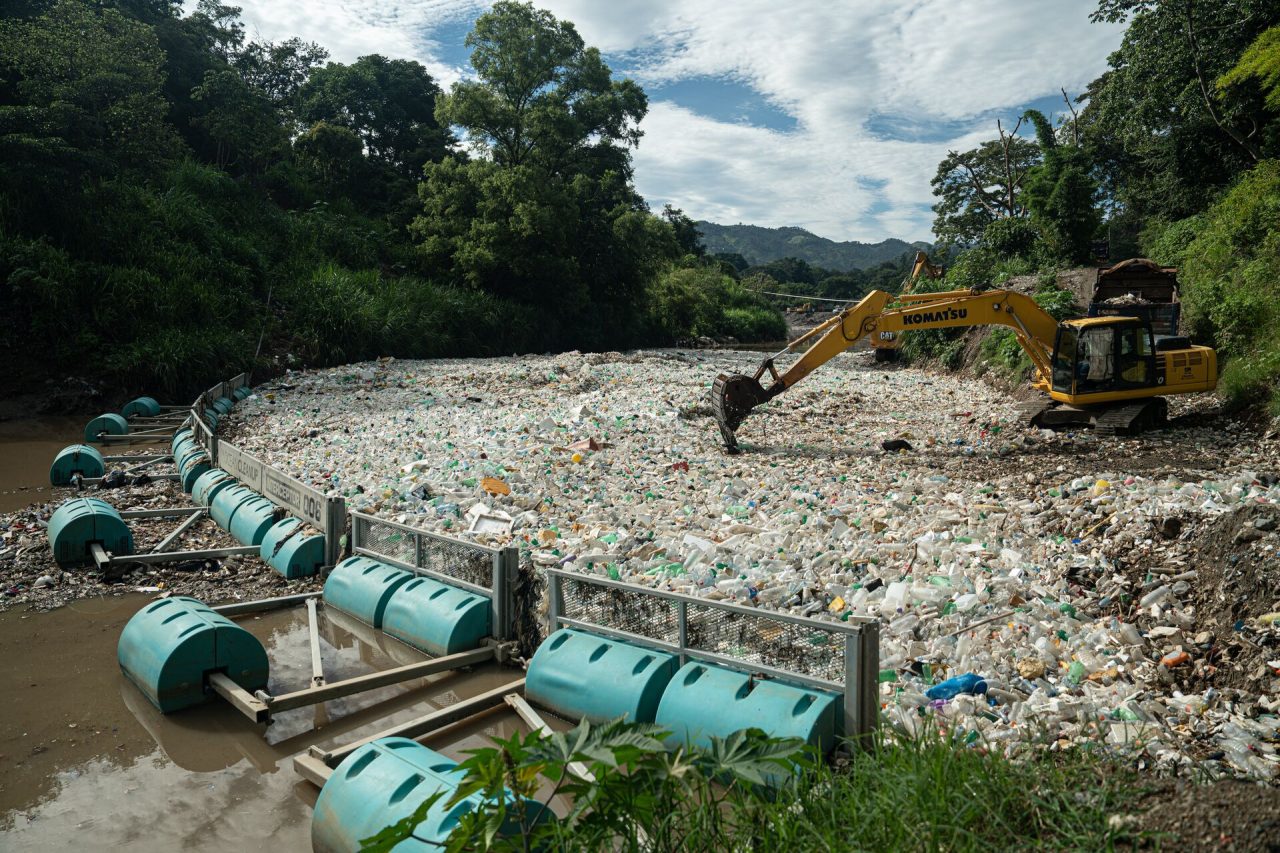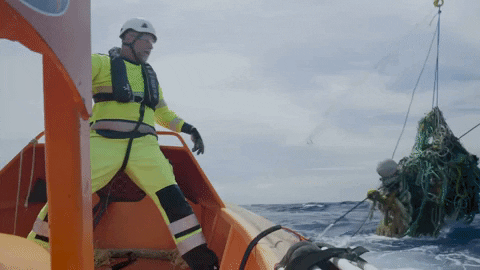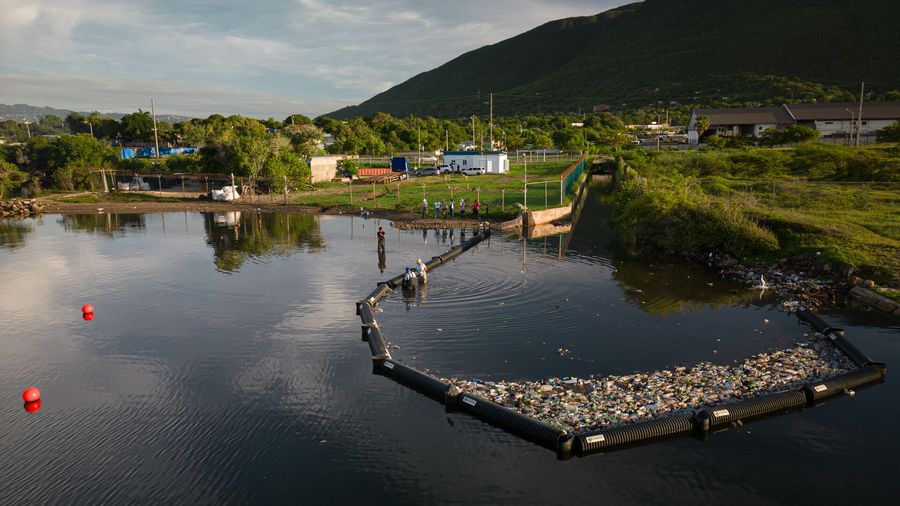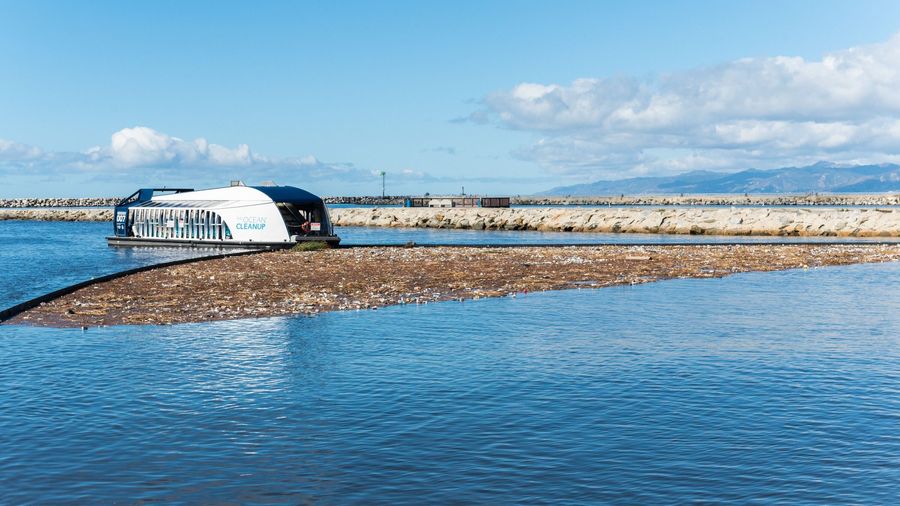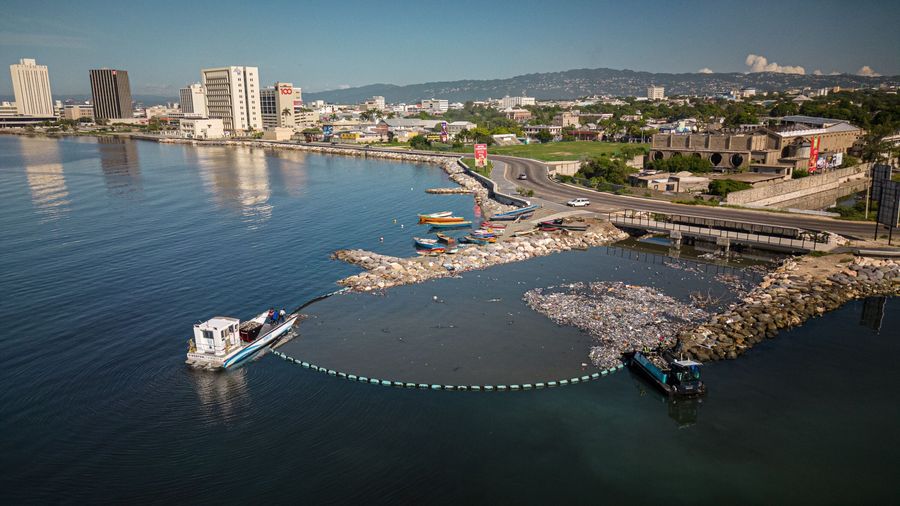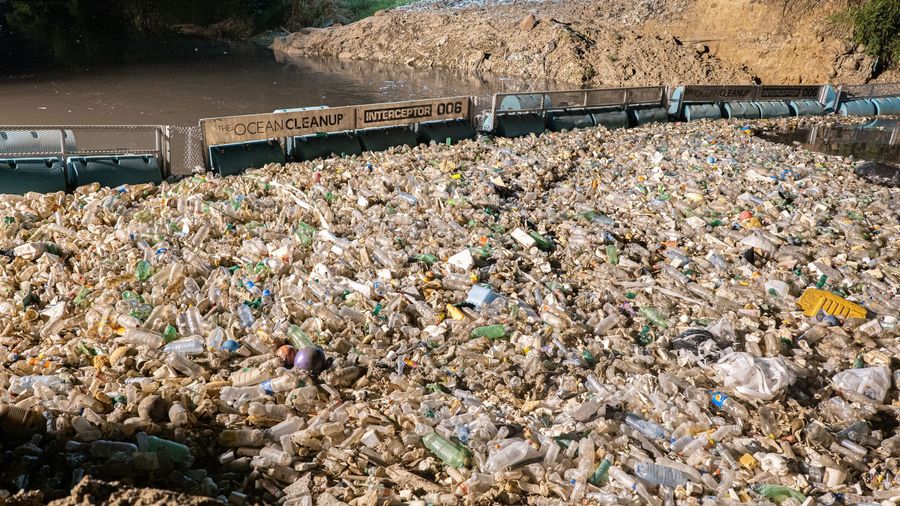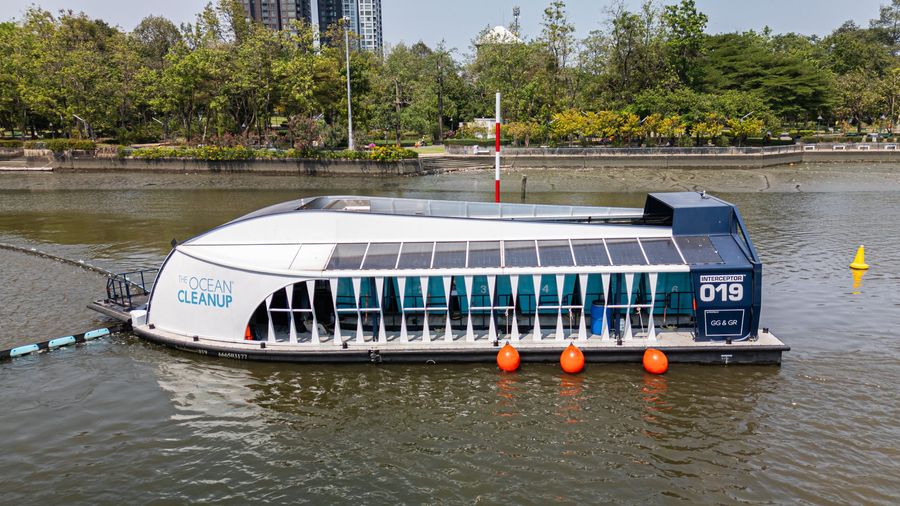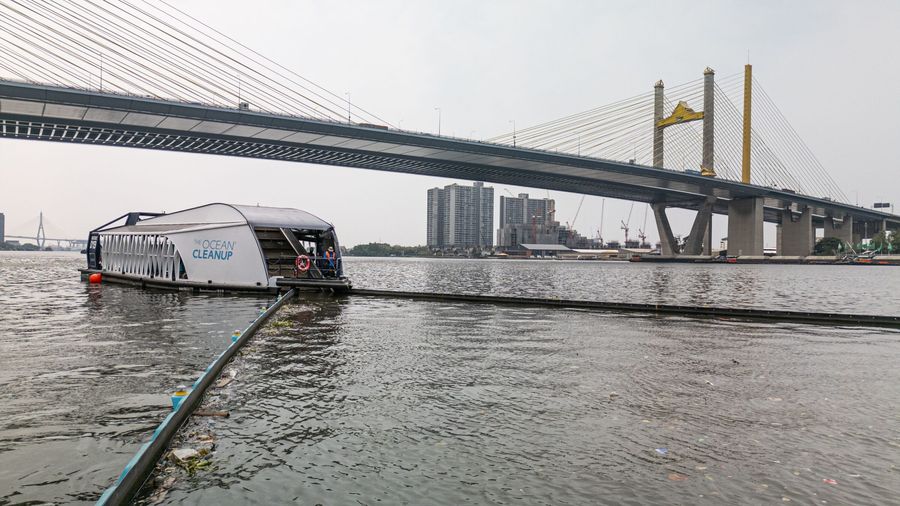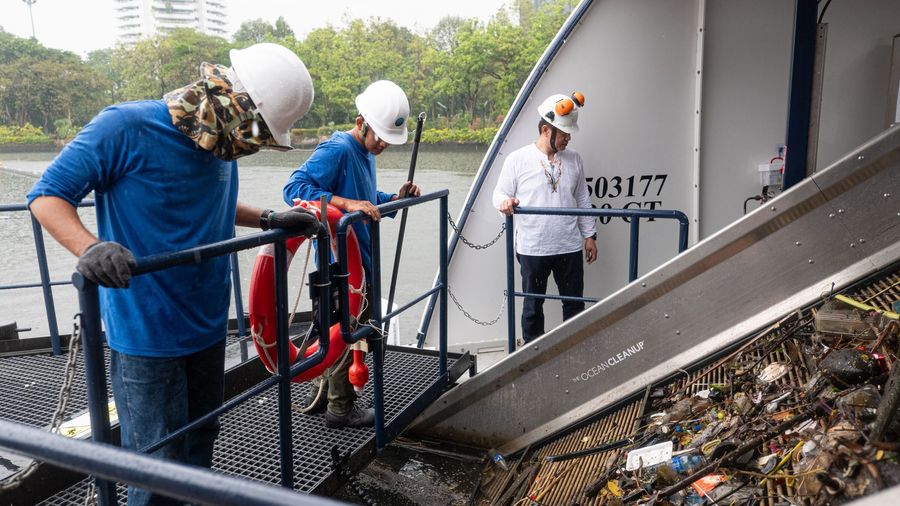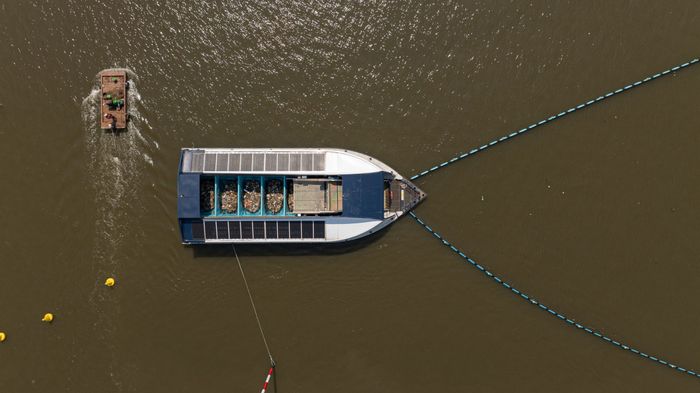
Bangkok Begins: The Ocean Cleanup’s Interceptor 019 Comes To Thailand
Back to updatesThe Ocean Cleanup has deployed Interceptor 019 to kick off the first step of a multi-year project to clean the Chao Phraya river. Together with our partners, we’re providing our technology, team, and research capabilities to solve plastic pollution in Bangkok’s busiest river – and stop thousands of tons of trash flowing into the Gulf of Thailand each year.
The Ocean Cleanup has deployed Interceptor 019 in Bangkok, Thailand, to begin the vital first phase of cleaning the Chao Phraya river. Thailand becomes the eighth country to implement our Interceptor solutions, and the fifth in South East Asia.
Interceptor 019 was officially inaugurated on 26 March 2024 in a ceremony attended by partners, stakeholders and media, alongside Founder and CEO of The Ocean Cleanup, Boyan Slat.
HOW TO CLEAN THE OCEAN: INTERCEPT IN CITIES
Our mission is to rid the oceans of plastic. We do this through a dual strategy: cleaning up legacy plastic that has accumulated in the ocean over the decades, starting with the Great Pacific Garbage Patch, while intercepting plastic in highly polluting rivers to close the tap on plastic emissions to the seas.
Our research shows that most ocean plastic is emitted from rivers. Many of the highest-emitting rivers are located in large coastal cities around the world, and so this is where we focus our Rivers program.
Intercepting plastic in highly-polluting rivers in these cities is the fastest and most effective way to reduce ocean plastic pollution right now, and to date our network of Interceptors has removed over 9 million kilograms of trash from rivers worldwide.
A SOLUTION DESIGNED FOR BANGKOK
Interceptor 019 is the third generation of our Interceptor Original. The first iteration was deployed in 2019; now, as well as Thailand, Interceptor Originals are catching plastic in rivers in Indonesia, Vietnam, Malaysia, Dominican Republic and the United States.
However, Interceptor 019 is only the start of our work in Bangkok. The Chao Phraya is one of the world’s busiest working rivers, providing vital services and livelihoods for the community. This means cleaning it requires a customized and city-centric approach, driven by research and complementing the efforts already made by city authorities.
Dozens of smaller canals feed the Chao Phraya, and much of the waste that ends up in the river – and heads towards the Gulf of Thailand – arrives via these canals. Interceptor 019 will immediately begin capturing trash and making an impact on the problem.
Working together with Chulalongkorn University, The Ocean Cleanup will research the flow of plastic pollution throughout the city of Bangkok, to find out where this waste is entering the Chao Phraya. In the next phase of the project, we’ll bring our expertise in implementing technological solutions to help intercept that waste, restoring the Chao Phraya and making significant impact on plastic emissions into the Gulf of Thailand.
We have already installed a series of cameras on bridges in Bangkok as part of our wider study into plastic pollution. These cameras take frequent pictures, which allow us to build a picture of the amount of trash in the river, what it might consist of, and the routes it takes while floating downstream.
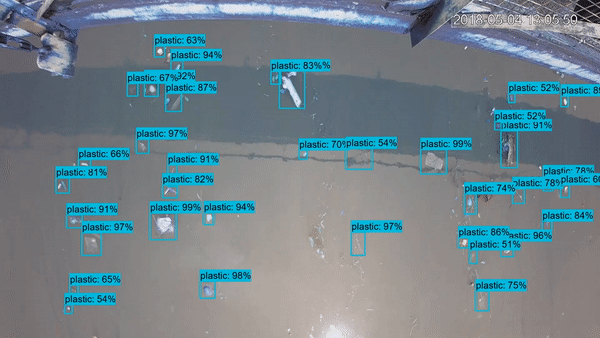
All this data helps us make decisions about what technology is best to intercept plastic in a particular waterway. Now we will add to this knowledge by studying Interceptor 019’s catch directly. In this way we can build a full understanding of Bangkok’s unique circumstances – and design solutions to match.
Monitoring and sharing this data also allows us to inform city authorities and policymakers on variations in plastic levels over time to provide essential feedback on other measures further upstream.
As well as this, this project will generate huge learnings for us which we can apply to other rivers and future Interceptors. The Chao Phraya is the busiest and widest river we have ever tried to clean, and Bangkok will provide huge amounts of in-the-field data and experience of city interception – crucial as we scale up our Rivers program.
IN LOCAL HANDS
Our efforts depend on local support and ownership to achieve our intended impact. We are fortunate to collaborate with the Ministry of Natural Resources and Environment, the Department of Marine and Coastal Resources, the Netherlands Embassy in Bangkok, Bangkok Metropolitan Administration, Ecomarine, Asimar, The Coca-Cola Company and Chulalongkorn University on this multi-year project in Thailand. We are excited to add our technology and expertise to their ongoing efforts to help their community, while contributing to our mission of ridding the oceans of plastic.
These local partners are essential for us to bring our Interceptors to cities around the world, and we hope Interceptor 019 helps bring increased awareness and visibility to the issue of plastic pollution for Bangkok’s residents and inspire the community to find solutions to the problem.
We are excited to begin this collaborative multi-year project to clean the Chao Phraya and prevent tons of plastic leaking into the Gulf of Thailand. Alongside cleaning the garbage patches in the ocean, intercepting in rivers is the key to ridding the oceans of plastic – and Interceptor 019 in Thailand is the next step towards that goal.
Follow @theoceancleanup and stay tuned to theoceancleanup.com as Interceptor 019 begins in Bangkok.
